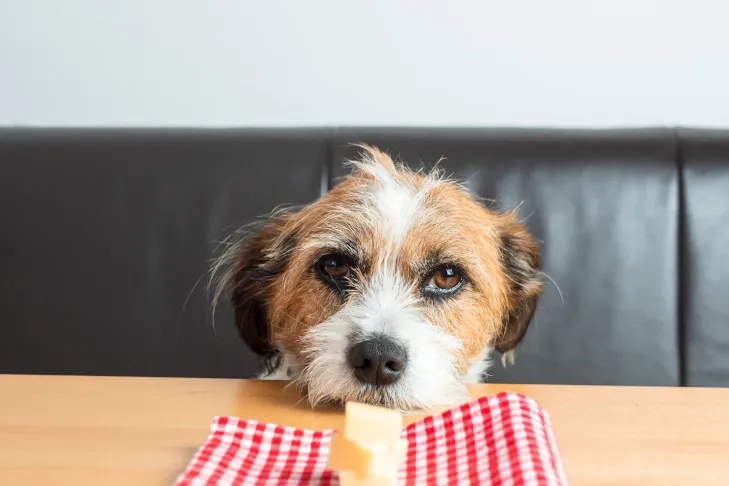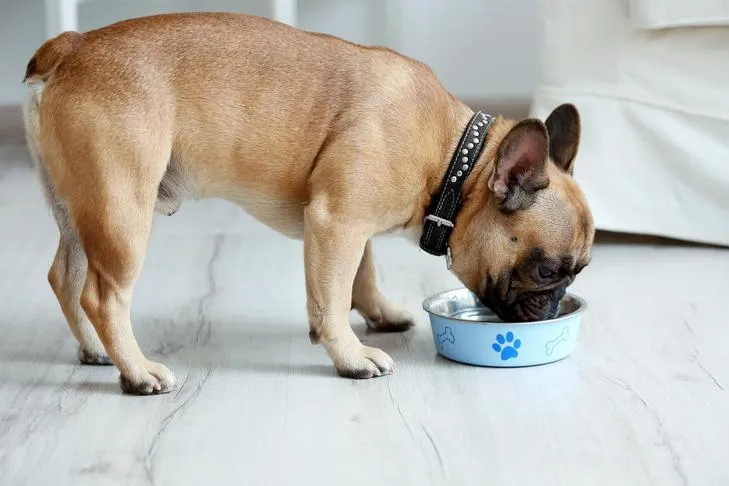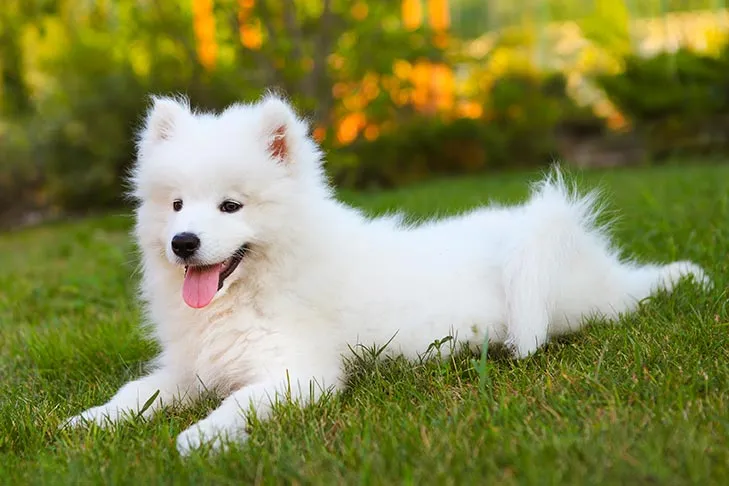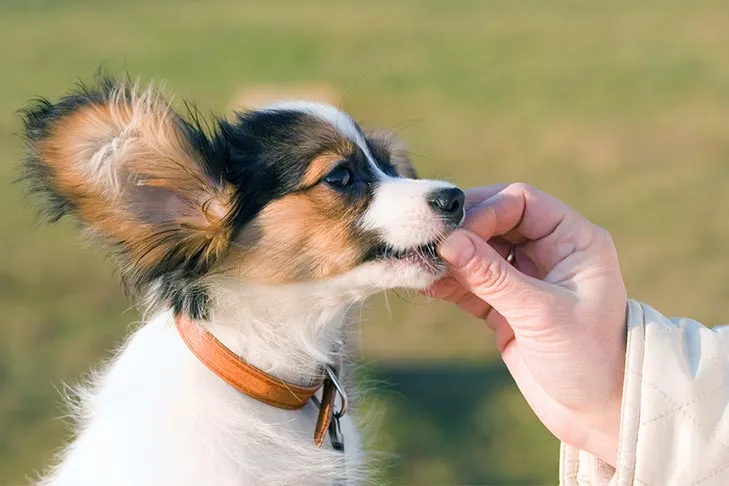As loving pet parents, it’s natural to want to share everything with our furry companions, including our food. However, many common human foods that are perfectly safe, or even beneficial, for us can be incredibly dangerous, or even deadly, for dogs. Understanding what dogs are not allowed to eat is paramount to ensuring their health and safety. This guide aims to equip you with the knowledge to navigate your pantry and protect your canine friend from accidental poisoning, helping you differentiate between harmless treats and hazardous toxins.
The Dangers Lurking in Our Kitchens: Foods Dogs MUST Avoid
While the temptation to share a bite of your meal is strong, it’s crucial to be aware of the common items that can pose a significant threat to your dog’s well-being. Keeping these off-limits foods out of reach is a fundamental aspect of responsible pet ownership. For a comprehensive look at particular plant-based dangers, explore articles about toxic vegetables for dogs and harmful vegetables for dogs.
Chocolate and Caffeine
Chocolate contains theobromine and caffeine, stimulants that dogs metabolize much slower than humans. Even small amounts can cause vomiting, diarrhea, tremors, seizures, and in severe cases, heart problems or death. Dark chocolate and baking chocolate are the most dangerous due to their higher concentration of these toxins. Similarly, caffeine in coffee, tea, and energy drinks can be lethal.
Grapes and Raisins
The exact toxic substance in grapes and raisins is unknown, but even small quantities can cause acute kidney failure in dogs. Symptoms can include vomiting, lethargy, diarrhea, decreased appetite, and abdominal pain, often appearing within hours of ingestion. Owners must treat any ingestion as an emergency.
Onions, Garlic, and Chives
These common kitchen staples belong to the Allium family and contain compounds that can damage a dog’s red blood cells, leading to anemia. Symptoms may not appear for several days and include weakness, lethargy, pale gums, and increased heart rate. All forms—raw, cooked, powdered, or dehydrated—are toxic.
Xylitol
A common artificial sweetener found in sugar-free gum, candies, baked goods, toothpaste, and some peanut butters, xylitol is highly toxic to dogs. It can cause a rapid release of insulin, leading to a dangerous drop in blood sugar (hypoglycemia), and can also cause liver failure. Always check labels for this ingredient, especially in seemingly innocent treats.
Alcohol
Alcohol, in any form, can cause severe intoxication in dogs, leading to vomiting, diarrhea, decreased coordination, central nervous system depression, tremors, difficulty breathing, coma, and even death. Even small amounts can be dangerous due to dogs’ smaller body size and differing metabolism.
Avocado
Avocado contains persin, a fungicidal toxin. While generally considered mild for dogs, it can cause vomiting and diarrhea in some. The greater risk comes from the large pit, which can cause choking or gastrointestinal obstruction if swallowed.
Macadamia Nuts
These nuts can cause weakness, tremors, vomiting, fever, and central nervous system depression in dogs. While usually not fatal, the symptoms can be debilitating and painful, typically appearing within 12 hours of ingestion.
Cooked Bones
While raw bones can offer some benefits, cooked bones are extremely dangerous. They become brittle and can splinter easily, leading to choking, mouth injuries, or internal perforations of the esophagus, stomach, or intestines. Always dispose of cooked bones safely.
Yeast Dough
Unbaked yeast dough can be problematic in two ways. First, the warm, moist environment of a dog’s stomach can cause the dough to rise, leading to painful bloating and potential stomach torsion. Second, as the yeast ferments, it produces alcohol, which can lead to alcohol poisoning.
Salty Snacks
Too much salt can lead to sodium ion poisoning in dogs. Symptoms include excessive thirst and urination, vomiting, diarrhea, lethargy, tremors, and seizures. Keep salty chips, pretzels, and heavily salted human foods away from your dog.
 All American Dog resting its head on the kitchen table looking at cheese.
All American Dog resting its head on the kitchen table looking at cheese.
Dairy Products (in excess or for lactose-intolerant dogs)
While some dogs can tolerate small amounts of plain dairy, many are lactose intolerant. Ingestion can lead to digestive upset, including diarrhea and vomiting. It’s best to observe your dog’s reaction and err on the side of caution.
Fat Trimmings and Bones (Raw)
Excessive fat trimmings, both cooked and uncooked, can lead to pancreatitis in dogs, a painful inflammation of the pancreas. Raw bones, while generally safer than cooked, still pose risks of choking, broken teeth, or internal injury, especially if they are small or easily splintered.
Persimmons, Peaches, and Plums (Pits)
The seeds and pits of these fruits contain cyanide, which is toxic. The pits themselves also pose a significant choking hazard and can cause intestinal obstruction. Always remove pits before offering small amounts of the fruit flesh.
Uncooked Meat and Eggs
Raw meat and eggs can contain bacteria like Salmonella and E. coli, which can make both dogs and humans sick. Raw egg whites also contain avidin, an enzyme that can interfere with biotin absorption, leading to skin and coat problems over time. Always cook meats and eggs thoroughly.
Artificial Sweeteners (Other than Xylitol)
While not all artificial sweeteners are as toxic as xylitol, it’s generally best to avoid them. Many artificial ingredients can cause digestive upset or other unknown long-term effects in dogs.
Moldy Foods
Any food that has gone bad and developed mold should be kept far away from your dog. Some molds contain mycotoxins that can cause severe neurological problems, seizures, and tremors. Always dispose of spoiled food properly. Many people are also curious about what people food should dogs not eat.
Human Foods Your Dog Can Enjoy (In Moderation)
While the focus is often on what dogs can’t eat, there are many human foods that are safe and even beneficial when offered correctly and in moderation. Knowing what are dogs allowed to eat can help you provide healthy treats and supplements to their regular diet.
Lean Meats and Fish
Cooked, unseasoned lean meats like turkey, chicken, and pork are excellent sources of protein. Fish like salmon and sardines, fully cooked and deboned, provide omega-3 fatty acids for a healthy coat and brain function. Ensure all bones are removed.
 French Bulldog eating from a bowl at home.
French Bulldog eating from a bowl at home.
Fruits and Vegetables
Many fruits and vegetables offer vitamins and fiber. Safe options include carrots, green beans, apples (without seeds), bananas, blueberries, and pumpkin. Always offer in small, digestible pieces and avoid any parts that could be a choking hazard.
Dairy (Plain Yogurt, Small Amounts of Cheese)
Plain, unsweetened yogurt can provide probiotics to aid digestion, especially if your dog tolerates dairy. Small quantities of low-fat cheeses like cottage cheese or mozzarella can be a high-value treat, provided your dog is not lactose intolerant.
Grains and Legumes
Cooked grains like plain rice and quinoa can be good sources of carbohydrates and fiber. Quinoa, in particular, is often found in high-quality dog foods. Small amounts of cooked beans (e.g., green beans, kidney beans) without spices can also be offered.
Nuts (Cashews, Peanuts – Unsalted, Moderation)
Unsalted cashews and peanuts (not macadamias or almonds) can be given in very small quantities as a treat. They contain healthy fats and protein. Always ensure they are unsalted and in moderation due to their high-fat content. If considering adding healthy fats, you might wonder what oil is good for dogs to eat.
 Samoyed puppy relaxing outdoors in a grassy field.
Samoyed puppy relaxing outdoors in a grassy field.
Other Safe Options
- Bread: Small amounts of plain, unseasoned bread without raisins are generally safe but offer little nutritional value.
- Corn: Off the cob, plain corn is a common ingredient in dog foods and can be a safe treat.
- Honey: In small amounts, honey offers antioxidants and can even help with local allergies.
- Popcorn: Air-popped, plain, unsalted, and unbuttered popcorn in moderation can be a light snack.
- Shrimp: Fully cooked and peeled shrimp, with no tails or heads, are low in fat and calories.
- Tuna: Small amounts of cooked, fresh tuna (or canned in water without spices) can provide omega-3s.
 Papillon puppy gently taking a treat from a hand.
Papillon puppy gently taking a treat from a hand.
Knowing what foods dogs are not allowed to eat is one of the most important aspects of canine care. While the list of dangerous foods might seem extensive, a little vigilance and knowledge can go a long way in preventing serious health issues. Always consult your veterinarian if you suspect your dog has ingested a toxic substance, or if you have any doubts about feeding your dog a particular human food. Prioritizing their safety ensures they live a long, happy, and healthy life by your side.
